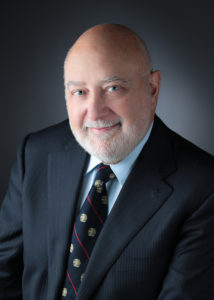
This year’s Legends of Digestive Disease session at Digestive Disease Week® (DDW) 2022 highlighted former president of the Society for Surgery of the Alimentary Tract (SSAT), Carlos Pellegrini, MD.
As a clinician, Dr. Pellegrini focused on surgery of the esophagus and the foregut. He retired as chief medical officer at the University of Washington in 2018. During the session, Dr. Pellegrini fielded questions from the audience about surgery, his distinguished career and his perspectives on medicine.
DDW News spoke with Dr. Pellegrini about how he has approached his work and what advice he has for current gastroenterologists.
DDW: You’ve worn many hats throughout your career. How do you see the various roles you’ve played?
Pellegrini: I’ve held several positions throughout my career. I enjoy changing my roles, but the common thread that connects them is a focus on serving the needs of others.
In many ways the roles I’ve had can be boiled down to four essential functions — clinician, educator, researcher and leader.
My clinical hat drove me into medicine. I came from a family of physicians, but I wanted to be a surgeon — to work with my hands and change the way that organs function to help people regain their health. As an educator, I have focused not only on transferring information and skills, but also on instilling the importance of respect, integrity and honesty — and promoting an environment conducive to building relationships. As a researcher, I have focused on increasing safety and improving the outcome of the operations we do.
I was fortunate to hold several leadership roles, including president of SSAT. During that time, my focus was to promote the society as a vehicle for education for gastrointestinal surgeons and for implementing the results of clinical investigations that would improve patient care.
DDW: What are you doing now that you’ve retired?
Pellegrini: I am an executive coach for people in health care, particularly those who are transitioning either into a new field or a new role. It has really been a natural progression and an extension of everything else I’ve done in my career.
In teaching, you tell someone how to do something. In mentoring, you actively help somebody and push them to do things. Coaching is much more of a co-creation. It is about understanding what a person wants to work on and helping them discover for themselves how to get there.
DDW: What advice do you have for those pursuing a career in medicine?
Pellegrini: If you embark on a career in medicine, you are embarking on a career to help others. Altruism and the pursuit of excellence become driving forces.
You have a responsibility to make sure that you know your field and understand your patient and their values. In many cases, physicians want to jump to a solution, but it is important to understand the problem from the patient’s perspective.
There are a few principles I use when interacting with people.
- Listen with intention to understand what the other person is trying to tell you.
- Express curiosity and ask questions. Stay focused on the patient.
- Refrain from judgment. Patients come to you at a vulnerable time in their life, and they put their trust in you. Allow for a wide variability of explanations of why something is happening.
Dr. Pellegrini participated in the session “Legends of Digestive Disease” on Sunday, May 22, at 4 p.m. PDT.


